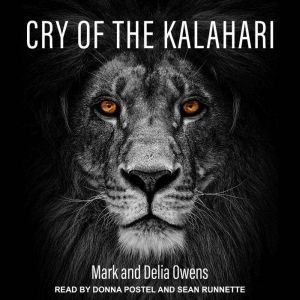

Cry of the Kalahari
Author: Mark Owens, Delia Owens
Narrator: Sean Runnette, Donna Postel
Unabridged: 14 hr 23 min
Format: Digital Audiobook Download
Publisher: Tantor Media
Published: 04/30/2019
Categories: Nonfiction, Nature, Animals, Environmental Conservation & Protection


